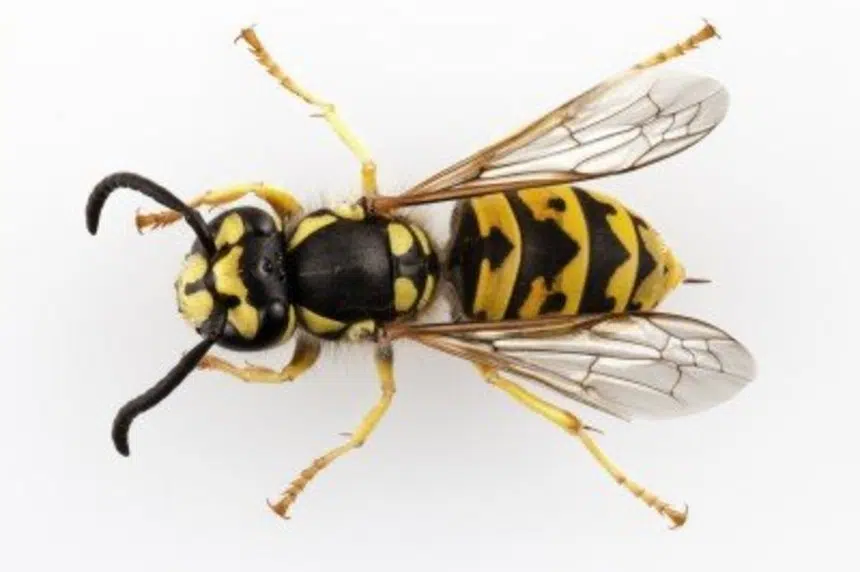If you’ve noticed more wasps around than usual, it’s likely because it’s their time of year to grow their hives.
City of Saskatoon entomologist Sydney Worthy said the city doesn’t track numbers of wasps year to year.
“It’s hard to say if they’re significantly more worse than previous years,” she said before noting there have been quite a few hanging around this year. “It does seem a bit higher than usual.”
Much like humans, a combination of heat and hunger is making wasps a little bit more aggressive, and Worthy said wasps tend to be more active in warm temperatures.
As a social insect, sometimes a few thousand wasps can congregate in a single hive. The ones plaguing patiogoers and outdoor eating enthusiasts are the workers, much like honey bees.
Worthy said this time of year is when the young wasps are maturing. The activity of the insects will die off as temperatures cool into the fall.
Though wasps may seem to have little use, Worthy said yellowjackets and hornets — the types of wasp people interact with most — do play a crucial role in the ecosystem as pollinators.
They also participate in pest control, dealing with nuisance bugs and crop pests, bringing some good despite becoming quite irritating later in the summer, and sometimes deadly for those with allergies.
Wasp-free weather
If you’re looking to get rid of those pesky wasps, there are various ways to enjoy the summer temperatures, according to Rick Van Duyvendyk of Dutch Growers.
“There are wasp traps that are usually yellow in colour and you can put pop into them or some kind of a syrup or anything like that — iced tea — that will attract them and then they’ll go inside,” Van Duyvendyk said.
But you can also be proactive at the beginning of the year.
“It’s basically a fake wasps nest because wasps are territorial. So you do that at the beginning of the year … where you put the fake wasps nest up and that will deter the wasps that come around,” he said, adding it’s best to have them up first thing in May.
Worthy recommended checking nooks and crannies around properties to check for nests that may have been built to find out where the wasps might be coming from.
She also referred to an old wives’ tale that recommends using peppermint oil to deter wasps from a certain area.
When wasps come flying around, people often try to swat them away. But is that the best approach?
“No, ignore them. Actually, when you start swatting at them, that’s when you make them mad,” Van Duyvendyk said.
He noted that when wasps are persistent, it’s tough to avoid swatting them, but that will only attract more.
— With files from 650 CKOM’s Libby Giesbrecht and Steve Seto







